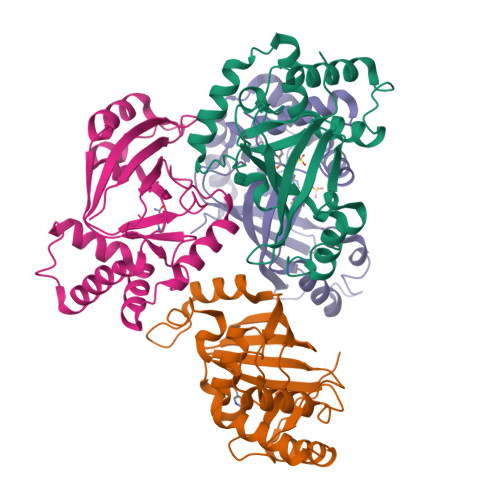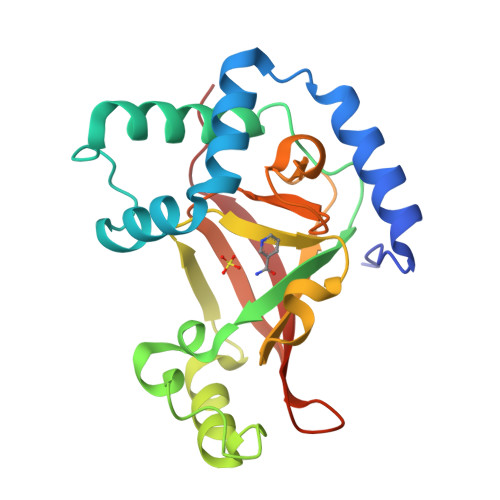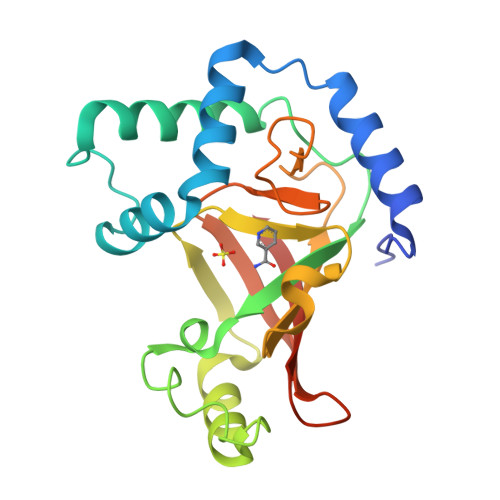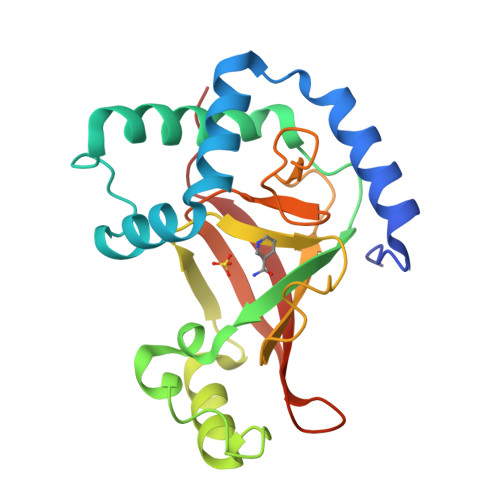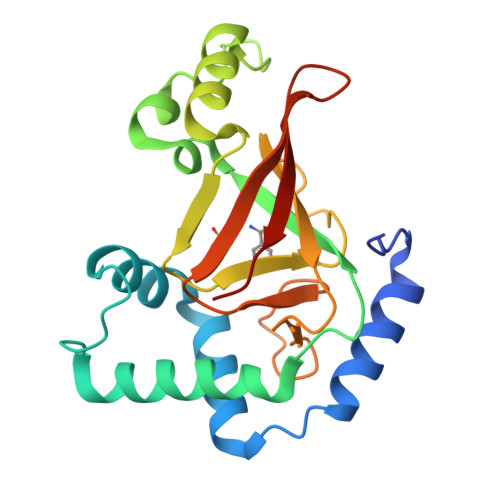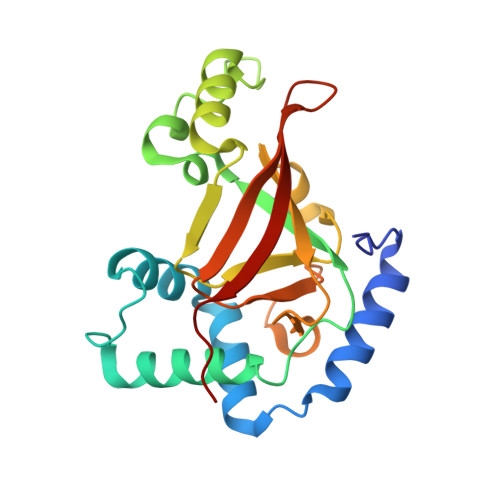Structural Basis for the Nad-Hydrolysis Mechanism and the Artt-Loop Plasticity of C3 Exoenzymes.
Menetrey, J., Flatau, G., Boquet, P., Menez, A., Stura, E.A.(2008) Protein Sci 17: 878
- PubMed: 18369192
- DOI: https://doi.org/10.1110/ps.073398508
- Primary Citation of Related Structures:
2C89, 2C8A, 2C8B, 2C8C, 2C8D, 2C8E, 2C8F - PubMed Abstract:
C3-like exoenzymes are ADP-ribosyltransferases that specifically modify some Rho GTPase proteins, leading to their sequestration in the cytoplasm, and thus inhibiting their regulatory activity on the actin cytoskeleton. This modification process goes through three sequential steps involving NAD-hydrolysis, Rho recognition, and binding, leading to Rho ADP-ribosylation. Independently, three distinct residues within the ARTT loop of the C3 exoenzymes are critical for each of these steps. Supporting the critical role of the ARTT loop, we have shown previously that it adopts a distinct conformation upon NAD binding. Here, we present seven wild-type and ARTT loop-mutant structures of C3 exoenzyme of Clostridium botulinum free and bound to its true substrate, NAD, and to its NAD-hydrolysis product, nicotinamide. Altogether, these structures expand our understanding of the conformational diversity of the C3 exoenzyme, mainly within the ARTT loop.
Organizational Affiliation:
Institut Curie, Centre de Recherche, Paris F-75248, France. julie.Menetrey@curie.fr








